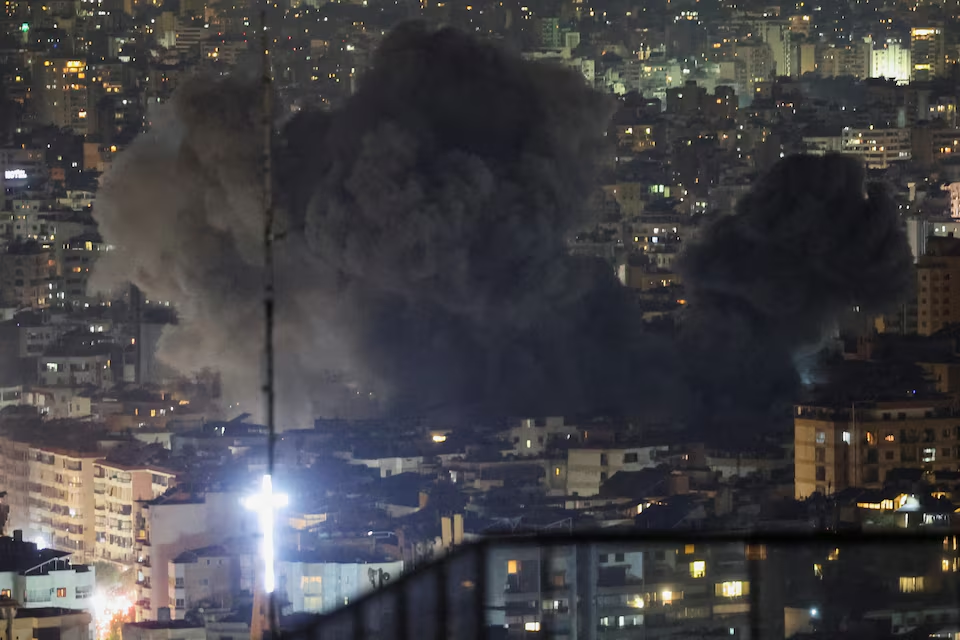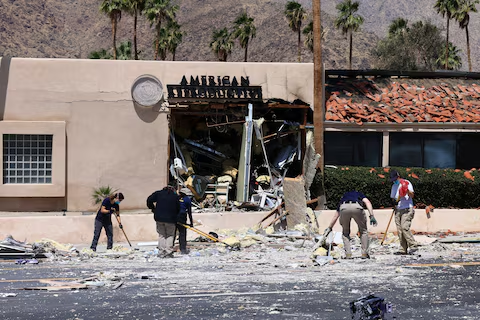The Israeli military has issued an evacuation warning to residents in the southern suburbs of Beirut, Lebanon, raising fears of a possible escalation in hostilities between Israel and Hezbollah. The warning, delivered through Arabic-language social media channels and regional media outlets, urged civilians to leave the area, which is known as a stronghold of the Hezbollah militant group.
The Israeli Defense Forces (IDF) stated that the warning was directed at avoiding civilian casualties in the event of military operations. “Residents of Dahiyeh [Beirut’s southern suburb], we urge you to evacuate for your safety,” the message read, referring to the predominantly Shia neighborhoods where Hezbollah maintains political offices, security compounds, and support infrastructure.
This rare move by Israel to publicly urge Lebanese civilians to flee an urban area comes amid intensifying border tensions following the assassination of a senior Hezbollah commander in southern Lebanon earlier this week. That strike, attributed to Israel, has prompted Hezbollah to vow retaliation, increasing the likelihood of further confrontation.
The IDF has neither confirmed nor denied whether a specific operation is planned in Beirut’s southern suburbs, but Israeli officials have emphasized their readiness to respond to any aggression. “We will act decisively against any threat from Lebanon,” an Israeli military spokesperson said.
Hezbollah has not officially responded to the evacuation call but has previously dismissed Israeli warnings as psychological warfare. In past conflicts, the Dahiyeh district has been a primary target for Israeli airstrikes, including during the 2006 war between Israel and Hezbollah. That conflict left parts of southern Beirut heavily damaged and killed over 1,000 people in Lebanon.
Lebanese authorities have not commented on the Israeli warning. However, security forces have reportedly increased their presence in Beirut, and local media outlets have confirmed heightened alert levels throughout the capital. Residents in the southern suburbs have expressed concern but also skepticism, noting that similar threats have been issued in the past without immediate follow-up.
The United Nations Interim Force in Lebanon (UNIFIL) called for restraint and warned that any escalation could endanger civilian lives and regional stability. “We urge all parties to avoid provocative actions and uphold their obligations under UN Resolution 1701,” a UNIFIL spokesperson stated, referencing the agreement that ended the 2006 war.
This latest development comes amid a broader climate of heightened tensions across the Middle East. Clashes between Israeli forces and Hezbollah fighters along the Israeli-Lebanese border have intensified in recent weeks, with both sides exchanging fire and casualties reported on both ends.
Analysts warn that a full-scale conflict involving Hezbollah would be far more destructive than previous flare-ups, given the group’s expanded missile arsenal and Israel’s stated willingness to target Hezbollah infrastructure deep inside Lebanon.
As of Thursday, no mass evacuations from Beirut’s southern districts had been reported, but humanitarian agencies say they are preparing contingency plans in case of large-scale displacement. International diplomats have called for urgent de-escalation, fearing that a misstep could spark another regional war.
Whether the evacuation warning signals imminent action or is intended as a deterrent remains unclear. What is certain, however, is that the fragile calm between Israel and Hezbollah appears increasingly at risk.



